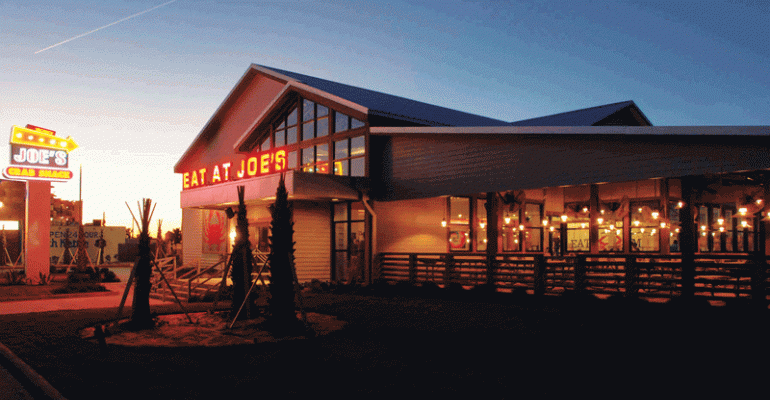 This post is part of the On the Margin blog.
This post is part of the On the Margin blog.
Private-equity groups and other investors are paying large sums for high growth restaurant chains, often at earnings multiples never before seen.
And yet a handful of chains struggle to look for buyers. In one of the most uncertain periods in modern industry history, buyers are shying away from anything that looks like a fixer upper.
This reluctance is causing problems for publicly traded chains seeking ways out of longtime sales declines — potentially leaving investors saddled with stock languishing at low prices.
“Private equity is more selective in pursuing higher growth, more millennial-focused, or on-trend categories, such as breakfast, regional cult favorites, or franchised, early-category players,” said Brad Swanson, managing director, consumer and retail, with KeyBanc Capital Markets.
“Some of the older, casual concepts in saturated sectors such as bar & grill are facing less robust process in the M&A market.
“It’s really a tale of two cities,” Swanson said.
In March, Ruby Tuesday Inc. said it was exploring strategic alternatives, including a potential sale of the company. The company recently said that effort was entering its “final phase.”
Earlier this year, meanwhile, both Fiesta Restaurant Group Inc. and Bravo Brio Restaurant Group Inc. have done strategic alternatives review processes — which usually means companies are for sale. Neither has resulted in a sale, however. Likewise, Joe’s Crab Shack owner Ignite Restaurant Group Inc. couldn’t find a buyer until it filed for bankruptcy, reduced debt and closed 41 restaurants.
That stands in direct contrast to some of the high-dollar, high-multiple merger and acquisition deals that have taken place this year. Buyers are paying up for chains like First Watch, the Bradenton, Fla.-based breakfast chain, or the fast-casual taco chain Torchy’s Tacos. The fast-casual pizza chain Blaze Pizza, meanwhile, reportedly received a high valuation when the private-equity group Brentwood Capital made its investment earlier this year.
Panera Bread Co., meanwhile, and Popeyes Louisiana Kitchen Inc. were both sold earlier this year for high prices.
“We say it’s a market of winners and losers,” said Damon Chandik, head of restaurant investment banking at Piper Jaffray. “If you’re hot and everything is working and there are no issues, then there are lots of buyers. But if you’re in casual dining and suffering significant comp sales declines, it’s a lot tougher.”
Part of the problem is the number of companies being brought to market, all at the same time.
“There’s an awful lot of product in the marketplace,” said Steve Rockwell, a restaurant consultant and longtime investment banker. “The volume of deals enables buyers to be more discriminating.”
Indeed, the mergers and acquisitions market reflects the industry as a whole. Some chains with differentiated positions are generating strong sales growth. But many chains have weak sales, and industry traffic has been poor overall in recent years.
But even in tough times, there are usually buyers willing to take those chains private or take a chance on fixing a concept’s problems to make a profit down the line. Investment bankers and investors say the current market is different. “No one wants to catch a falling knife,” one said privately.
That’s particularly true with casual dining, and with bar and grill chains in general. Their traffic has been falling for more than a decade now, and with problems afflicting retail traffic there’s a sense that many of them will struggle in the future — given that many were built around retail developments.
Oh, and labor costs are going up, making profitability more of a challenge.
“The overall macro environment for restaurants seems to be getting tougher for the less differentiated concepts,” Chandik said. “There’s a lot of pressure on multi-unit retail. A lot of restaurants are tied to malls. And the mall business is getting destroyed.”
As a result, the market for some of these restaurants is weak, even though many companies are trading at low prices. Weak results have sent many stocks to multi-year lows, including Fiesta, Buffalo Wild Wings Inc., and Applebee’s owner DineEquity Inc.
Several companies, meanwhile, are languishing with stock prices in the single digits, including Famous Dave’s of America Inc., Papa Murphy’s Holdings Inc., Bravo Brio, Kona Grill Inc., Ruby Tuesday and Noodles and Co.
Those low prices traditionally bring out private-equity groups looking for a deal, which Golden Gate Capital did earlier this year in buying Bob Evans Restaurants. But with so much uncertainty, and so much product being shopped, the buyers just aren’t there.
Jonathan Maze, Nation’s Restaurant News senior financial editor, does not directly own stock or interest in a restaurant company.
Contact Jonathan Maze at [email protected]
Follow him on Twitter at @jonathanmaze

